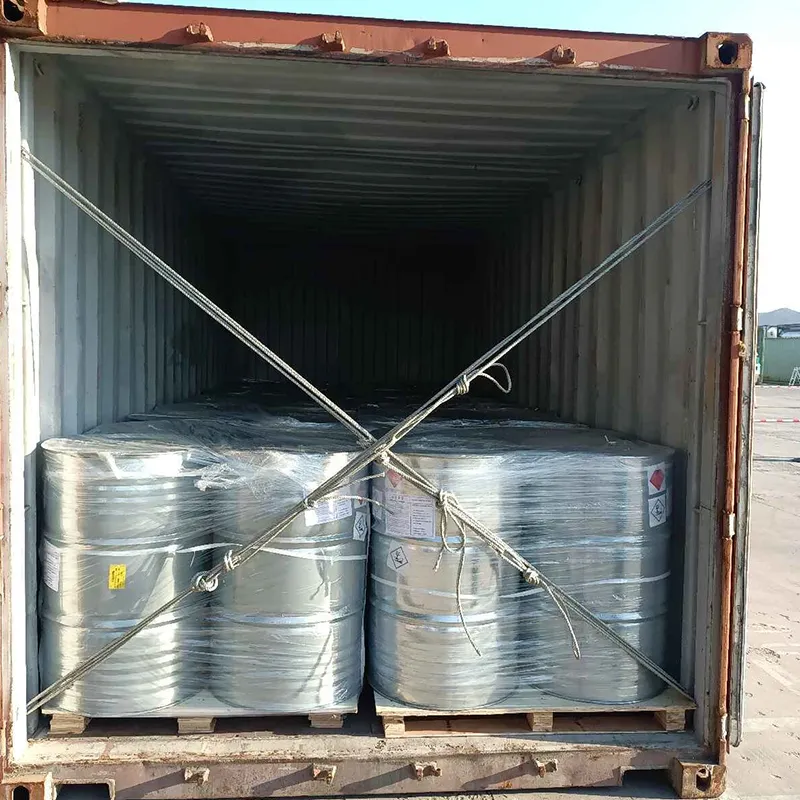
Sodium Dichloroisocyanurate Production Insights from Leading Manufacturers Worldwide
The Importance of Sodium Dichloroisocyanurate and its Manufacturers
Sodium dichloroisocyanurate (NaDCC) is a widely used disinfectant and a key component in water treatment processes. As public health considerations grow, especially in light of waterborne diseases and the need for effective sanitation, the demand for this compound has surged. This article explores the significance of sodium dichloroisocyanurate, the manufacturing process, and the key players in its production.
What is Sodium Dichloroisocyanurate?
Sodium dichloroisocyanurate is a stable chlorine compound primarily used for disinfection and sanitization. It appears as a white crystalline powder and is known for its effectiveness against a broad spectrum of pathogens, including bacteria, viruses, and fungi. Due to its ease of use and overall safety profile, NaDCC has become a preferred choice for water treatment in various applications, including swimming pools, municipal water supply, and even in household cleaning products.
One of the critical advantages of sodium dichloroisocyanurate is its ability to release chlorine at controlled rates. This property makes it a reliable option for continuous disinfection, ensuring that safe water quality standards are maintained over extended periods. Furthermore, NaDCC is less corrosive than other chlorine compounds, making it safer for both users and equipment.
The Manufacturing Process
The production of sodium dichloroisocyanurate typically involves a synthesis process that combines cyanuric acid, chlorine gas, and sodium carbonate. The process begins with the chlorination of cyanuric acid, which leads to the formation of dichloroisocyanurate. This is subsequently neutralized with sodium carbonate to produce the final product. Modern manufacturing techniques often incorporate advanced control systems to ensure product quality and compliance with regulatory standards.
Manufacturers focus on optimizing the production process to enhance efficiency while minimizing environmental impact. For instance, many companies implement closed-loop systems to capture and recycle chlorine fumes, reducing harmful emissions. Quality control measures are vital, as the presence of impurities can affect the efficacy of the final product. Leading manufacturers invest in rigorous testing techniques to guarantee that their sodium dichloroisocyanurate meets the necessary standards set by regulatory bodies such as the Environmental Protection Agency (EPA) and the World Health Organization (WHO).
sodium dichloroisocyanurate manufacturers

Major Manufacturers and Market Landscape
The market for sodium dichloroisocyanurate is characterized by several key players. Major manufacturers include companies like OXIDENT, Anmol Chemicals Group, and TATA Chemicals. These companies have established themselves in the global market by offering high-quality products and comprehensive customer service.
In recent years, advancements in formulation technology have allowed manufacturers to develop variations of sodium dichloroisocyanurate that cater to specific applications. For instance, some products may be designed for the agricultural sector, while others target industrial water treatment facilities. The diversity in product offerings allows companies to capture various segments of the market and meet the unique needs of their clientele.
Moreover, the growing awareness regarding hygiene and water quality has led to increased demand in emerging markets, particularly in Asia and Africa. This trend presents ample opportunities for manufacturers to expand their operations and participate in global supply chains. Companies are increasingly focusing on establishing partnerships and strategic alliances to enhance their market presence and drive growth.
Challenges and Future Prospects
Despite its advantages, manufacturers of sodium dichloroisocyanurate face challenges, such as fluctuating raw material costs and stringent environmental regulations. Additionally, competition from alternative disinfectants poses a threat to market share. To remain competitive, manufacturers must continually innovate and adapt to changing market demands.
The future of sodium dichloroisocyanurate appears promising, with growing environmental concerns leading to increased investment in water treatment technologies. As the global population continues to rise, the need for effective sanitation solutions will only intensify, solidifying sodium dichloroisocyanurate’s role in public health initiatives.
In conclusion, sodium dichloroisocyanurate is an indispensable disinfectant in today’s world, and its manufacturers play a crucial role in ensuring public safety. By focusing on quality, sustainability, and innovation, these companies contribute significantly to the ongoing fight against waterborne diseases and the promotion of a healthier environment. As the market continues to evolve, those who adapt to new challenges will thrive in this essential industry.
-
The Safety Challenges of Ammonium Nitrate FertilizerNewsJun.26,2025
-
The Critical Role of Mining ChemicalsNewsJun.26,2025
-
Shelf Life of Glacial Acetic Acid Food GradeNewsJun.26,2025
-
Enhancing PVC Longevity with 1,2,3-Benzotriazole InnovationsNewsJun.26,2025
-
China’s Dominance in Food Additive ProductionNewsJun.26,2025
-
Can Aluminum Hydroxide Replace More Toxic Alternatives?NewsJun.26,2025
-
PE and PP Plastics with Benzotriazole AdditivesNewsJun.12,2025
Hebei Tenger Chemical Technology Co., Ltd. focuses on the chemical industry and is committed to the export service of chemical raw materials.
-

view more DiethanolisopropanolamineIn the ever-growing field of chemical solutions, diethanolisopropanolamine (DEIPA) stands out as a versatile and important compound. Due to its unique chemical structure and properties, DEIPA is of interest to various industries including construction, personal care, and agriculture. -

view more TriisopropanolamineTriisopropanolamine (TIPA) alkanol amine substance, is a kind of alcohol amine compound with amino and alcohol hydroxyl, and because of its molecules contains both amino and hydroxyl. -

view more Tetramethyl Thiuram DisulfideTetramethyl thiuram disulfide, also known as TMTD, is a white to light-yellow powder with a distinct sulfur-like odor. It is soluble in organic solvents such as benzene, acetone, and ethyl acetate, making it highly versatile for use in different formulations. TMTD is known for its excellent vulcanization acceleration properties, which makes it a key ingredient in the production of rubber products. Additionally, it acts as an effective fungicide and bactericide, making it valuable in agricultural applications. Its high purity and stability ensure consistent performance, making it a preferred choice for manufacturers across various industries.











